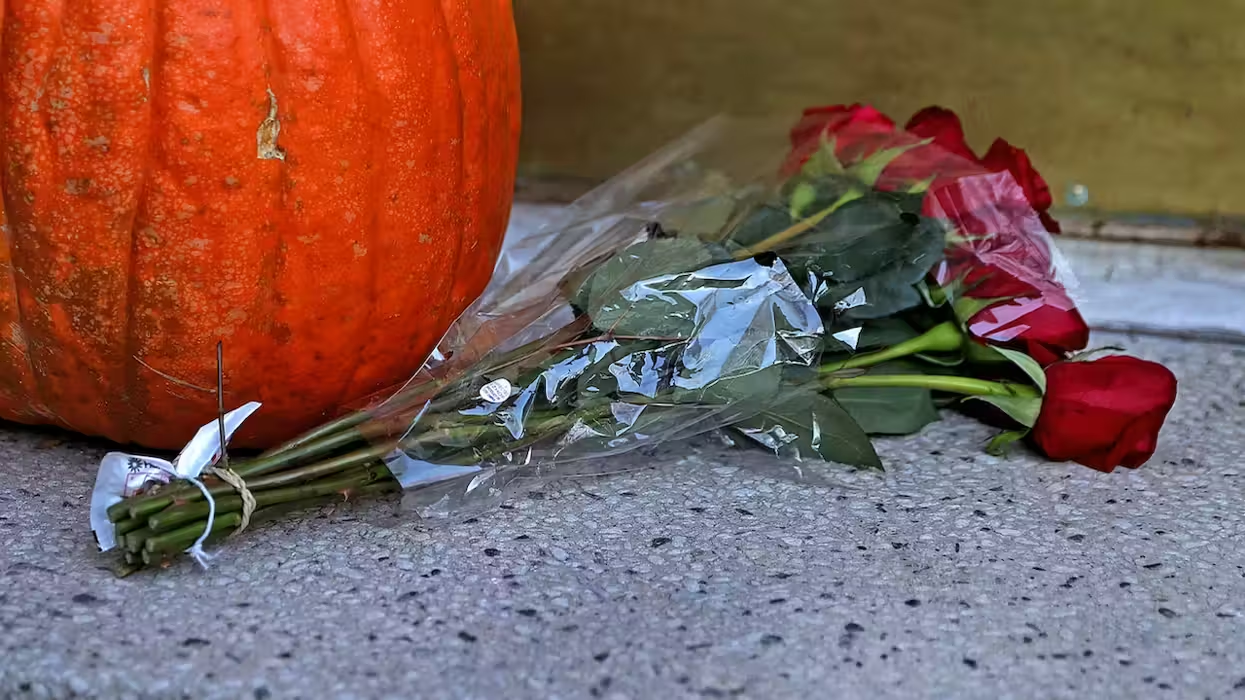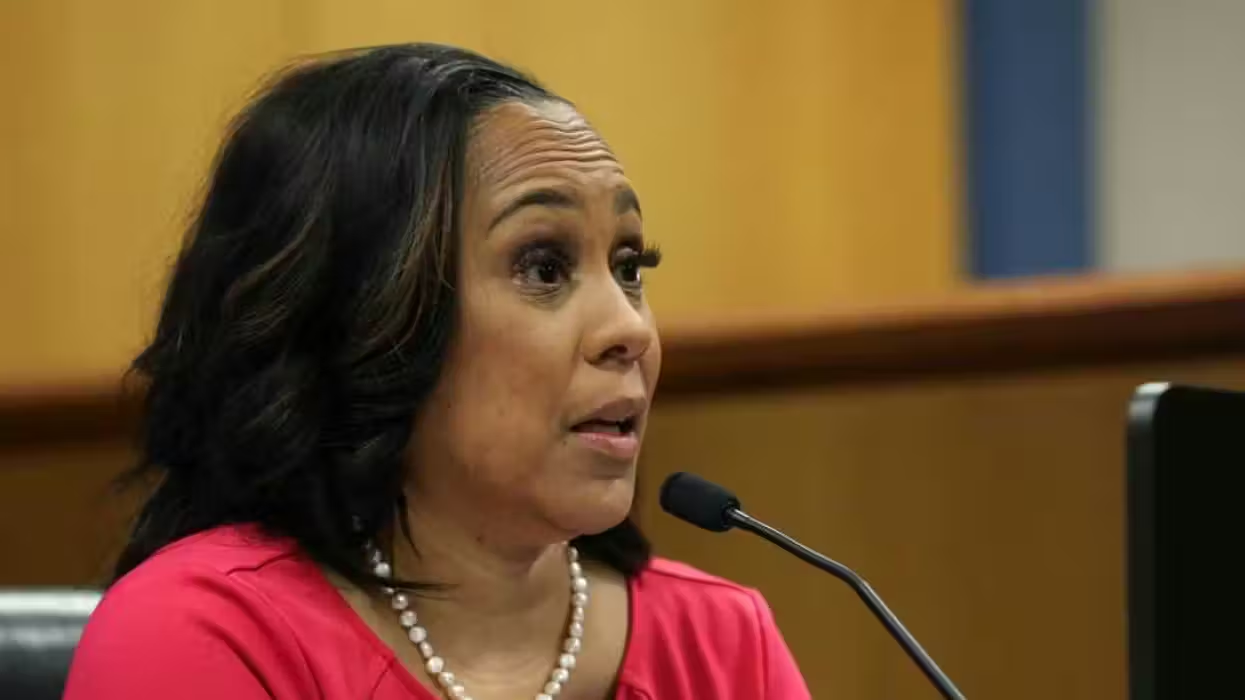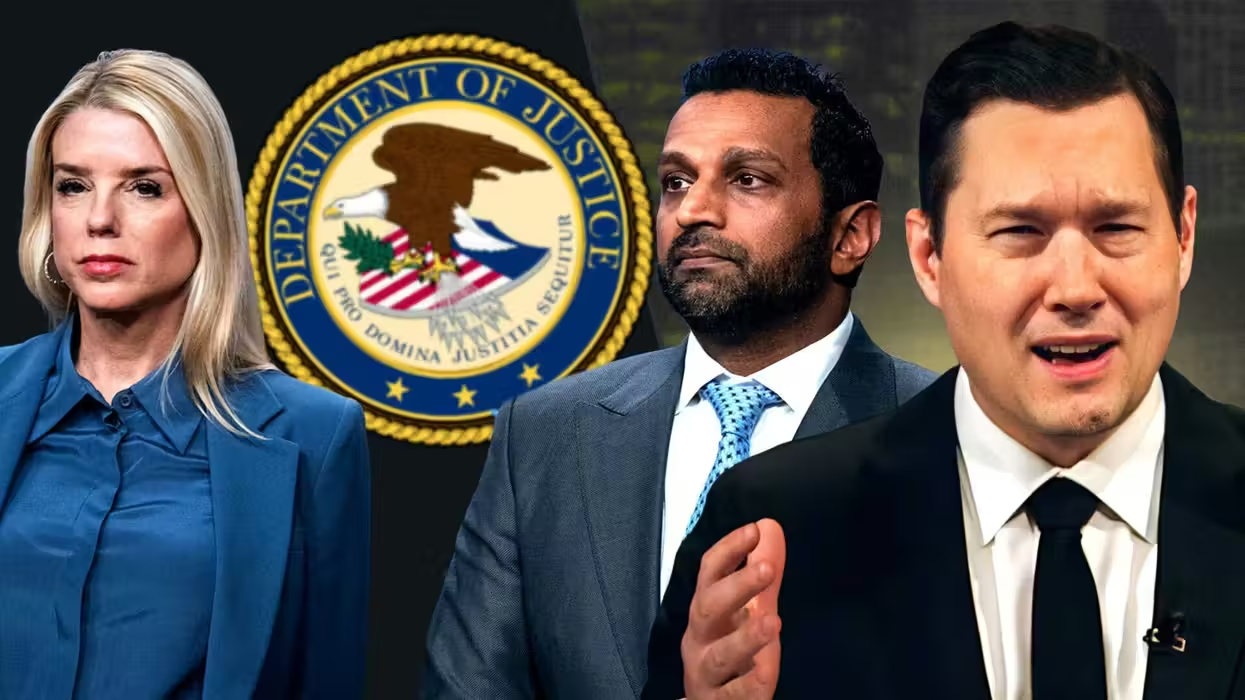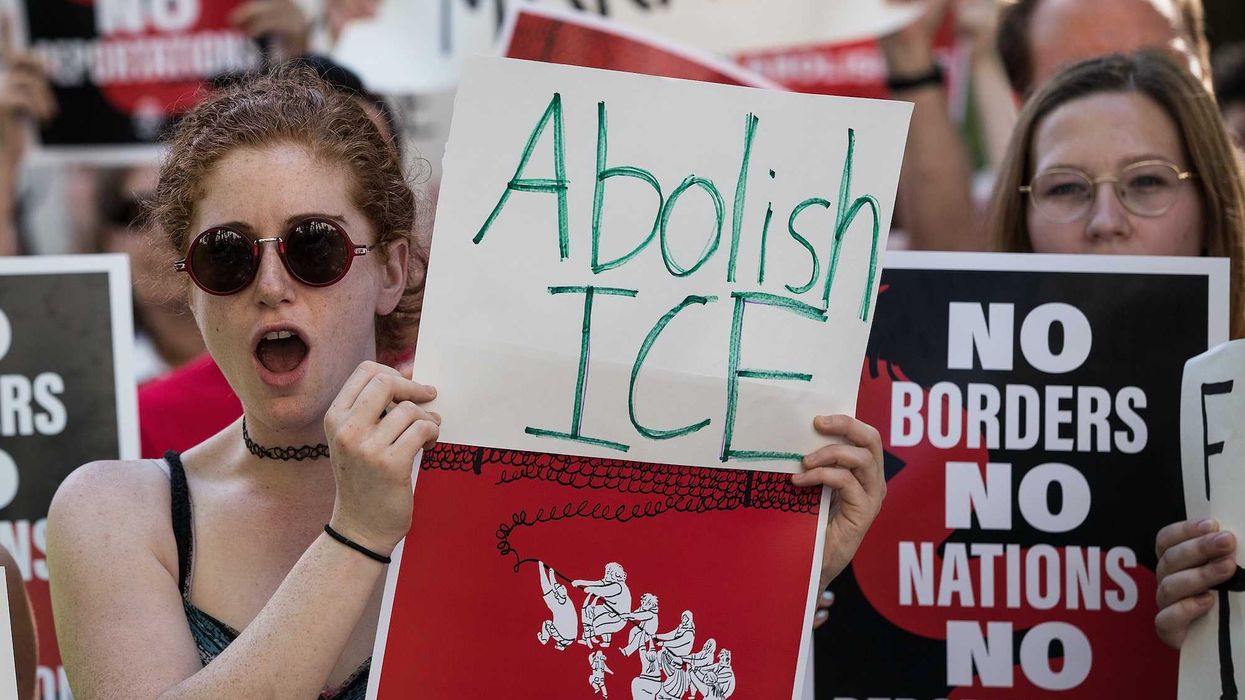
© 2025 Blaze Media LLC. All rights reserved.
Did You Know It's National Preparedness Month? Here Are Tips From the Experts on How To Be Ready
September 05, 2012
"We do not rely on nor do we need FEMA or anyone else to come rescue us and take care of us."

What does emergency preparedness mean to you? For some, it means having a flashlight (bonus if it has working batteries). Others are a bit more advanced with a "72-hour kit" or "bug out bag" -- basically the essentials to maintain life for a short period of time. Then there are those who build bunkers and go on extreme coupon benders to stock up on supplies.
Given that it's National Preparedness Month, an annual awareness month hosted in September by the Federal Emergency Management Agency, TheBlaze decided to speak with some of those in the preparedness movement that we're familiar with (via The Marketplace by TheBlaze) and get some practical tips about getting ready for emergencies.
“This year’s wildfires, the derecho, and Hurricane Isaac are all important reminders that disasters can happen anytime and anywhere,” FEMA Administrator Craig Fugate said in a statement. “By taking steps now to prepare for emergencies, we ensure that our families and communities are prepared to respond and recover from all types of disasters and hazards. Together, our efforts will build a stronger and more resilient nation.”
Mike Porenta, chief of operations for the American Preppers Network, said that being ready for disaster -- whether it be a natural event, epidemic sickness or terrorist attack -- is more than just having stocks of water. He also said it shouldn't take a huge investment to adequately prepare one's family for an emergency.
In its own statement regarding National Preparedness Month, APN states that it takes FEMA's suggestions as a baseline but that it wants people to focus more on preparedness with an edge for self-reliance:
FEMA’s information is solid, it’s great – it’s also simple and short-sighted. In seeking a simple and structured solution, they have completely overlooked teaching self-reliance. In fact, their model expects you to NOT be self-reliant. They want you to prepare to live until they get to you. We want you to prepare so that when/if they get to you, you say no-thanks and send them away. Preppers do not belong in shelters. We belong in our homes if we’re bugging in or in out BOL if we’re bugging out. We do not rely on nor do we need FEMA or anyone else to come rescue us and take care of us.
Get to know your neighbors now

Porenta's number one suggestion is to get to know your neighbors before you're in an emergency situation. There is a benefit in banding together as a group in an emergency, but he said doing so after a disaster strikes is not the best time.
Stating what he hopes is common sense, Porenta notes you shouldn't approach neighbors with only preparedness plans in mind -- "you don't want to scare them off" -- but doing so tactfully could give neighbors a strong network.
Porenta is clear to point out that not everyone is going to jump on this preparedness bandwagon.
"You can't train the mentality of preparedness," Porenta said. But finding others around you who would want to work together in an emergency could be enough to help those nearby as a whole if the time ever came.
Plan on a group scale
After finding neighbors interested in preparing, Porenta said the next step is to establish a plan.
"Just like when you have an escape route plan ... discuss who will be the most in need in the event of a disaster," he said. "Identify the weakest people in the neighborhood who would need help, the people who are really struggling."
These people could vary depending on the situation. Elderly may be limited in a physical disaster, but during economic collapse, consider those who might be on food stamps and how to help them should that service ever be cut off.
"Just get three to four families like you feel like you can connect with and figure out a plan for your area. Figure out the most likely disaster your area could experience -- plants closing, natural disaster -- and plan accordingly.
Stock up on what matters
Although it may seem like a good idea to have a large stockpile of canned goods in your basement, Porenta said that might not be as useful as you would think.
"People think about food the most, but they haven't taken into consideration shelter ... or access to water," he said.
In a situation where "normal American life can't continue, figure out your most essential human needs" and gather those items (or learn how to safely obtain them if you can't gather them per se):
- Oxygen
- Water and water test kits
- Shelter
- Food
What would Porenta say is the most valuable tool to have on hand? A chainsaw. But before you go rushing out to buy a brand new chainsaw, he said you are more likely to find a quality used chainsaw in the local classifieds for as much as or less than a brand new.
Porenta said chainsaws can be used to chop items blocking roadways or get through rubble to help rescue someone who is trapped.
The ease of cleaning and storing water is another measure Porenta highlighted.
"There are tons of amazing products that will help you with filtration," he said, specifically mentioning a straw with a filter built-in that can clean up to 50 gallons of water directly. (A straw similar to what Porenta describes can be found here. )

Jeff Gleason with LPC Survival, which happens to be part of The Marketplace by TheBlaze (formerly Markdown), agrees. His company features several survival tools that focus on water. Gleason told TheBlaze the one he would recommend the most -- if he had to pick one go-to product -- are those part of the Berkey Water Purifican System. You can find a portable Berkey system here.

"Water is so important to your survival," he said. "It is downplayed how essential and necessary it is. People don't give it the credit it needs."
Gleason and LPC Survival know a thing or two, too. The company, he explained, began before the prepper movement became so popular. And he said as long as companies aren't trying to capitalize on fear -- as long as they're in it for the right reasons -- the movement to prepare for disasters is a good one.
"We will see preparedness continue to grow but there will be people who will take advantage of the conditions and also those who do it for the right reasons," Gleason said.
On The Marketplace website, Gleason said that the company considers preparedness a "good idea" after taking a long-term look at what is happening in the world.
"We know that the Internet is a big place and customers can go anywhere—we want them to know that LPC is here for them, helping them get the products they need to keep their loved ones safe," Gleason said.
Overall, Porenta said the camping industry too has helped make preparedness as a whole lot easier.
"Local camping store sales people are good resources -- very knowledgeable," he said.
You can check out FEMA's "Ready" campaign for its tips on preparing for emergencies here.
And if you're into learning more about preparedness, you can check out some of the emergency and survival products over at The Marketplace by TheBlaze here.
Related:
Want to leave a tip?
We answer to you. Help keep our content free of advertisers and big tech censorship by leaving a tip today.
Want to join the conversation?
Already a subscriber?
more stories
Sign up for the Blaze newsletter
By signing up, you agree to our Privacy Policy and Terms of Use, and agree to receive content that may sometimes include advertisements. You may opt out at any time.
Related Content
© 2025 Blaze Media LLC. All rights reserved.
Get the stories that matter most delivered directly to your inbox.
By signing up, you agree to our Privacy Policy and Terms of Use, and agree to receive content that may sometimes include advertisements. You may opt out at any time.






